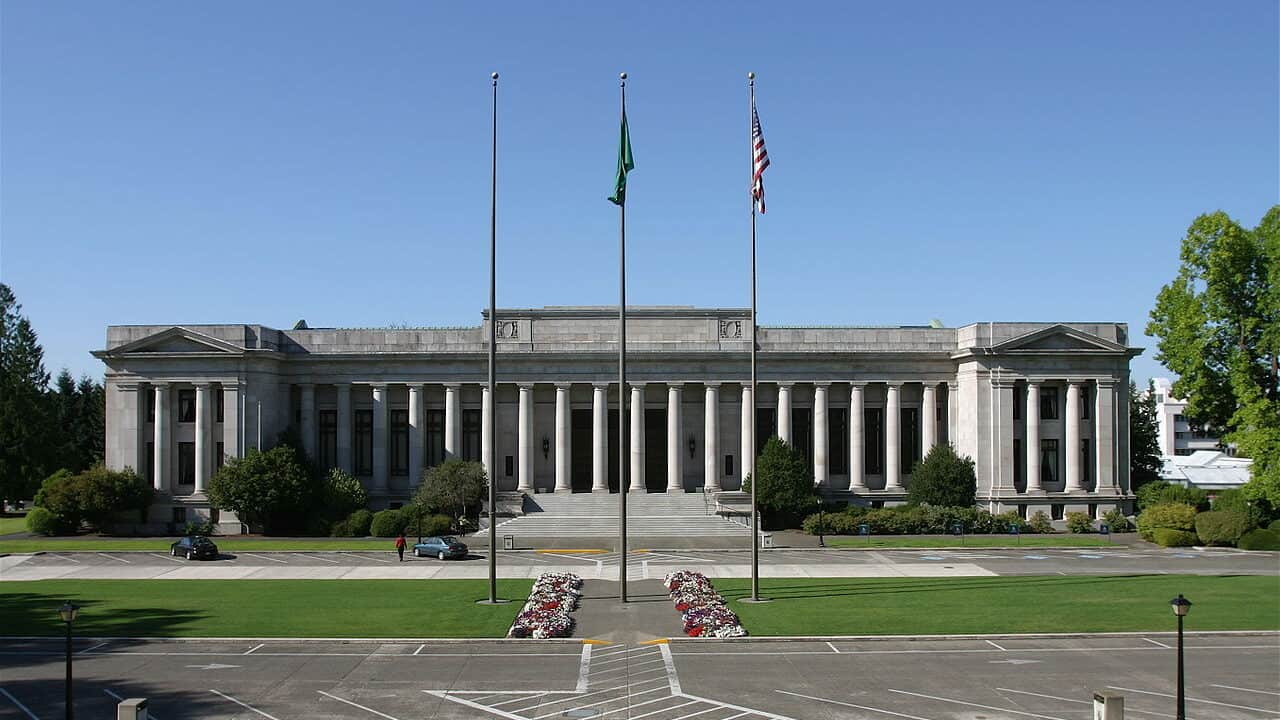 WACapitolTempleOfJustice by Cacophony is licensed under CC BY-SA 3.0 via Wikimedia Commons
WACapitolTempleOfJustice by Cacophony is licensed under CC BY-SA 3.0 via Wikimedia Commons
Consumers in Washington scored a victory at the state Supreme Court on March 7, 2024, when the panel struck down a sales tax on funds transferred from the Universal Service Administrative Company to Assurance Wireless through the Lifeline program that subsidizes low-income phone service. USAC is the semi-private company that administers Universal Service Fund programs for the FCC, so the law amounted to a tax on a government subsidy.
This decision is a win for taxpayers and consumers because it will keep states from stealing fees customers pay into the Universal Service Fund for pet projects.
Americans for Tax Reform filed an amicus brief in this case two years ago, urging Washington State’s Court of Appeals to reverse a previous Board of Tax Appeals ruling that had allowed the tax to stand. The BTA considered it a greater priority for the State of Washington to siphon federal subsidies to consumers into their own coffers, wasting public money meant for the Lifeline program.
The Court agreed with ATR’s argument in the amicus brief that USAC is an instrumentality of the federal government. Longstanding precedent prohibits states from taxing government monetary transactions:
While we agree that the transactions at issue in this case were retail sales and that the legal incidence of this tax falls on USAC, the buyer, we conclude that USAC operates as an instrumentality of the federal government, the retail sales tax therefore violates the intergovernmental tax immunity doctrine as applied in this case.
The government’s argument, which BTA and the Court of Appeals upheld before the Supreme Court heard the case, was that disbursements from USAC to Assurance Wireless count as taxable events between two private entities and assessed a total of $4.75 million for these transactions.
As the Court noted, “Assurance opted to provide its Lifeline services in the form of free prepaid plans. These plans include a free wireless phone and a fixed amount of voice minutes, text messages, and data.” According to the state, the “taxable event” was the transfer of USF funds from USAC to Assurance to fund the prepaid phones for consumers. Even if you can’t afford to pay for phone service, the State of Washington will still tax your free government phone.
As expressly established by the agreement between USAC and the FCC, USAC is merely the “agent” of the FCC for distributing “support payments from the [USF],” which includes the federal funds distributed for the Lifeline support payments at issue in this case. USAC must obtain FCC approval to distribute these funds. Because the FCC is immune from state sales taxes, USAC has no authority from the FCC to use these federal funds to pay state sales taxes.
BTA’s mistake hinges on its belief that USAC is a contractor that can be taxed by states. USAC, however, is not a contractor but an agent of the FCC. USAC does not buy “Lifeline” from the FCC and then resell it – it is fully governed by the FCC and therefore acts as its agent to disburse Lifeline funds to participating carriers. USAC therefore cannot be taxed as a buyer.
Neither the FCC nor USAC can or would pay tax on federal funds. If Washington’s argument that carriers receiving Lifeline disbursements owe sales tax had prevailed, carriers like Assurance who choose to participate in the Lifeline program and offer service to some customers for free would have to produce millions in back sales taxes and then charge Lifeline customers a sales tax on their free phone service going forward.
The state Supreme Court made the right decision siding with consumers over the state’s tax collectors.
Read the amicus brief here and the Supreme Court decision here.

